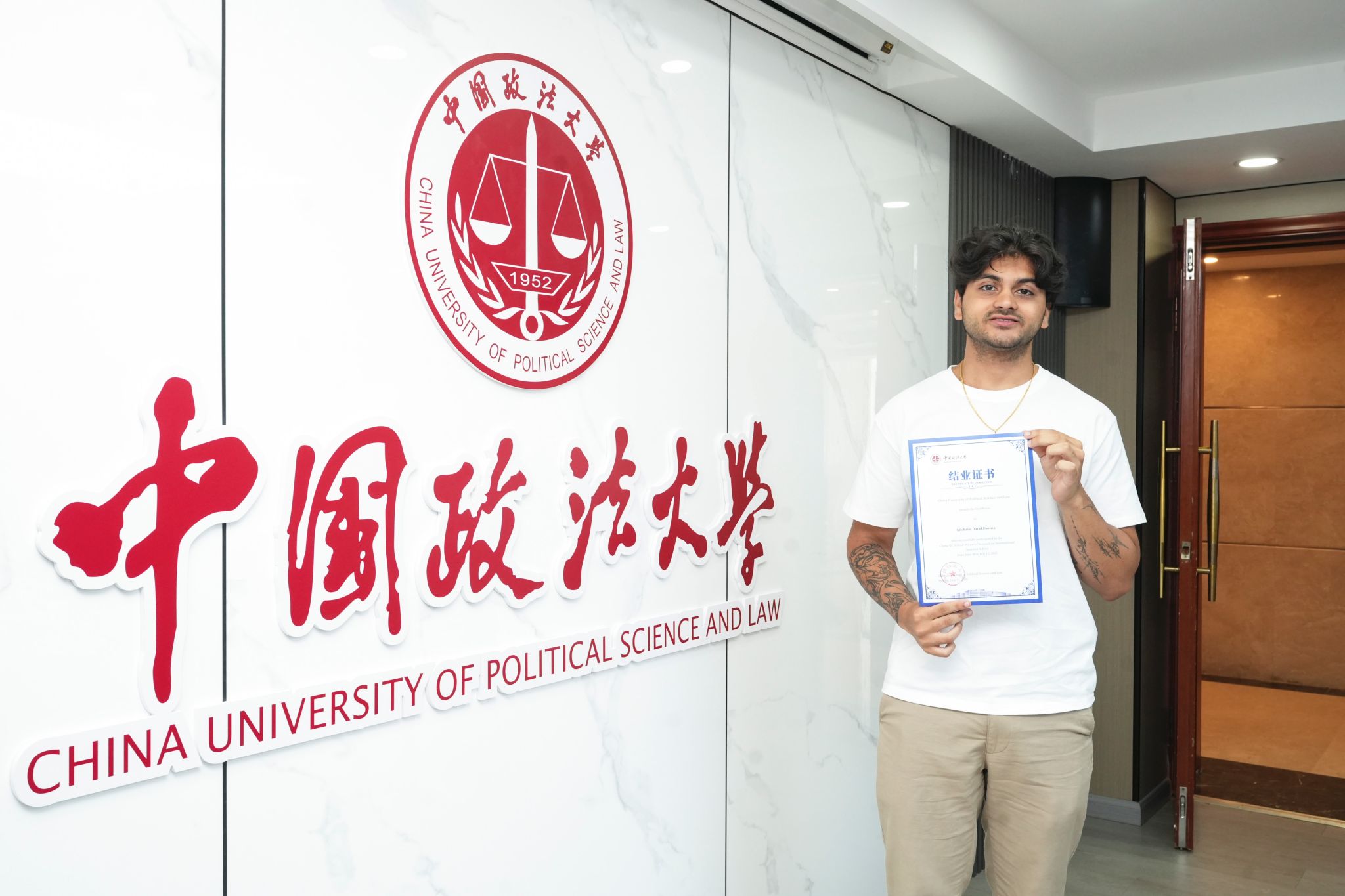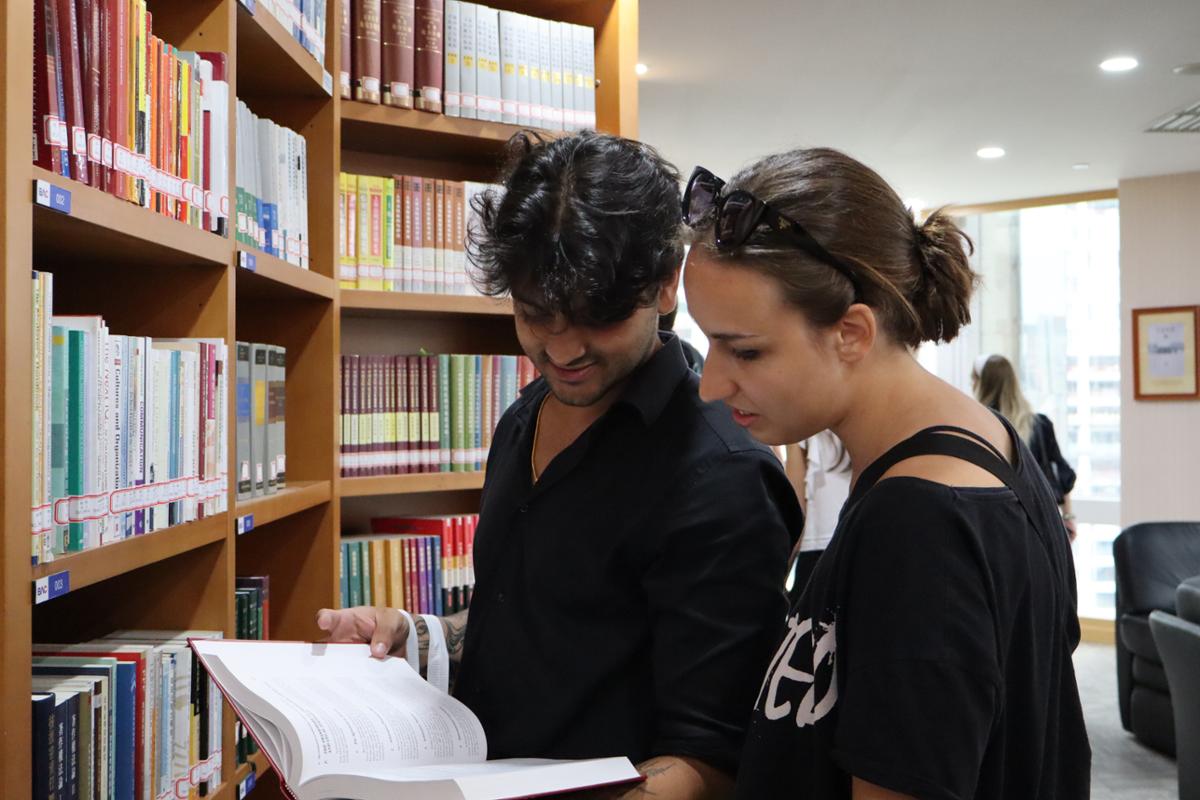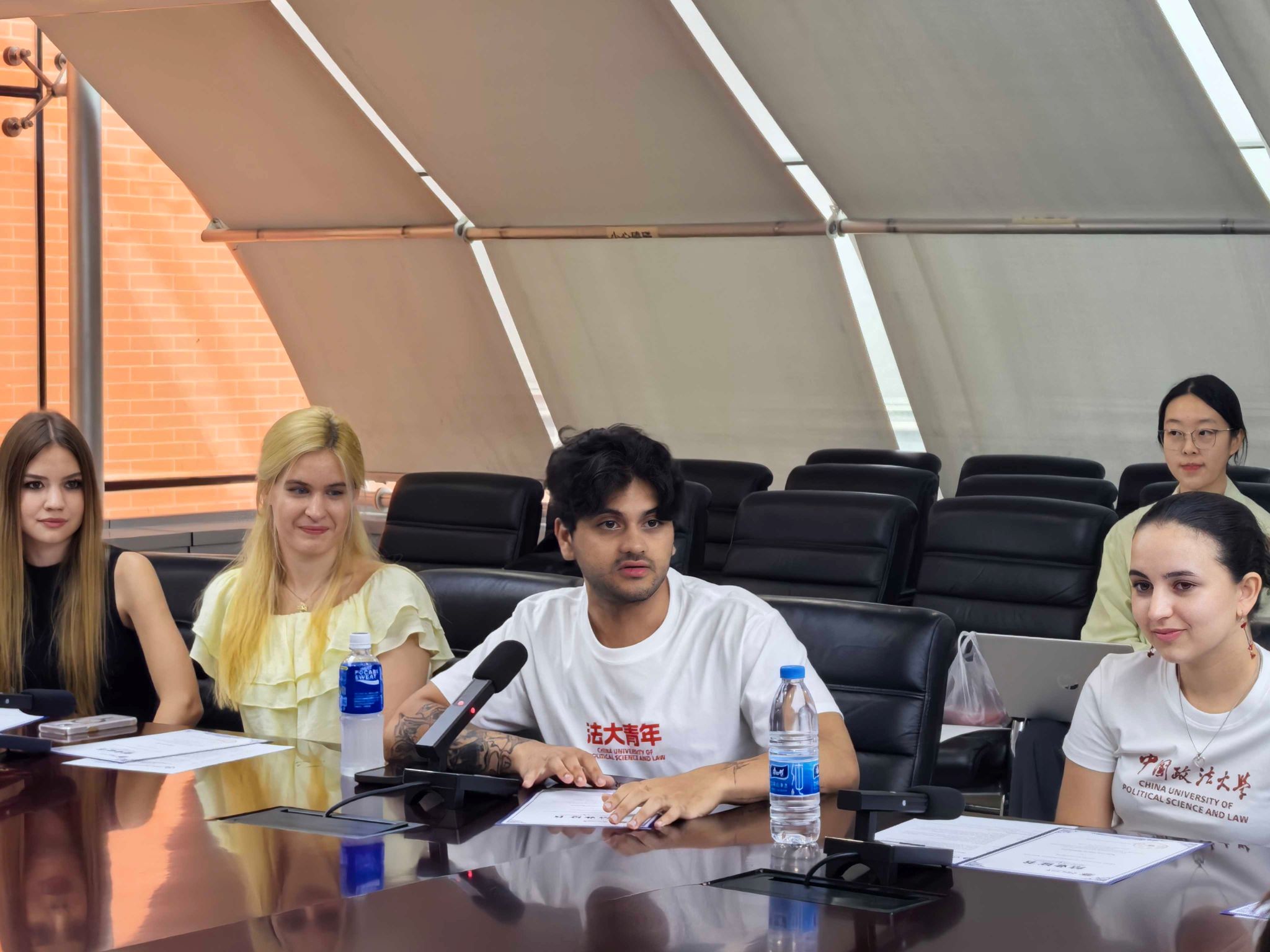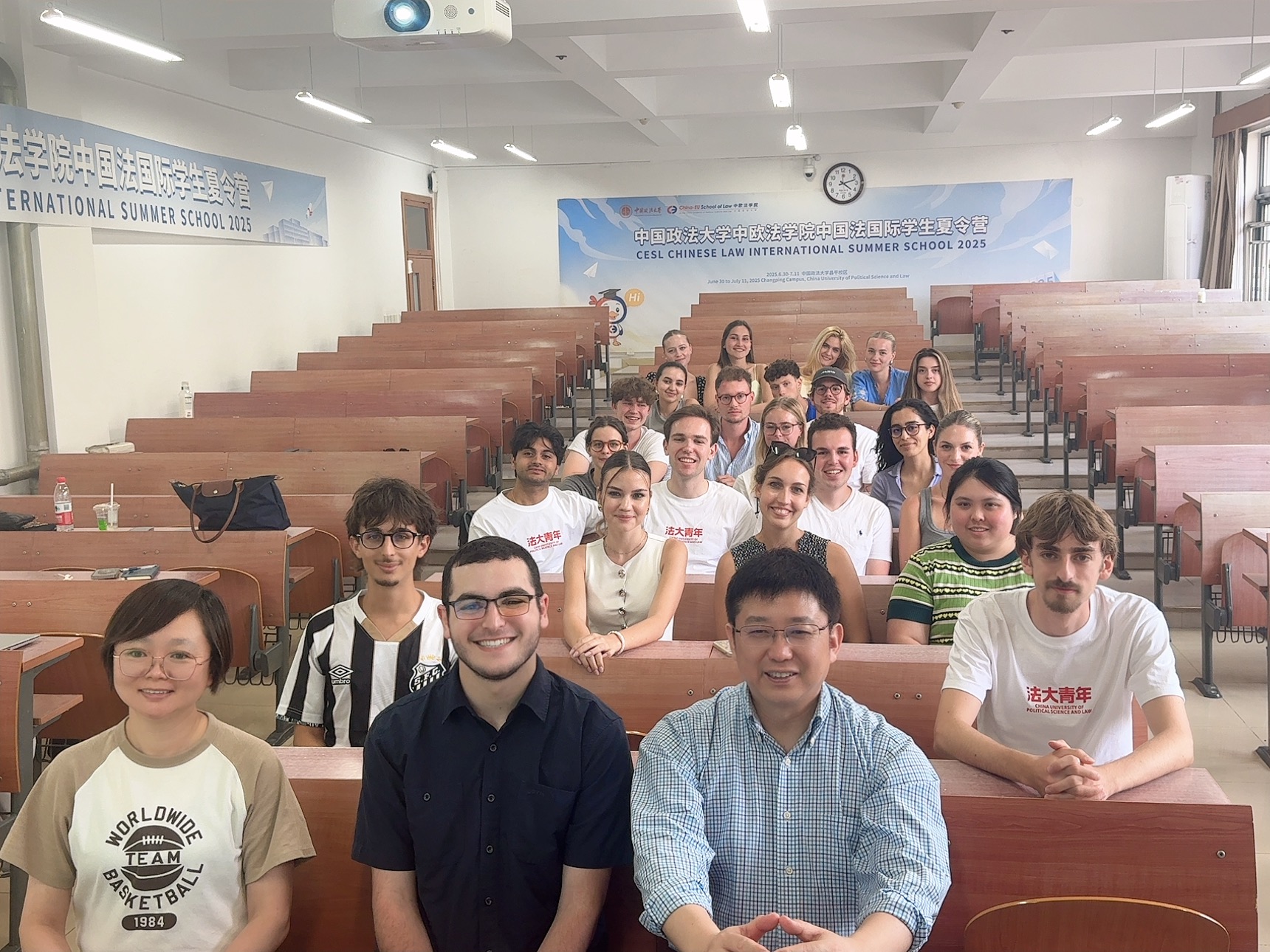【编者按】Gilchrist Dsouza是英国纽卡斯尔大学法学院的本科生。他参加了2025年中国政法大学中欧法学院中国法国际学生夏令营。在本文中Gilchrist Dsouza将分享他在夏令营的经历。原文为英文,译文为AI翻译,仅供参考。

My recent visit to China was more than just an academic exchange it was a transformative experience that deepened my understanding of law, governance, and culture in a system often misunderstood from the outside. Spending time on the ground and engaging with Chinese legal scholars and students allowed me to see the country beyond the typical headlines, and I left with a more nuanced, realistic, and respectful view of how China functions.
我此次的中国之行,不只是一次学术交流,更是一段具有变革意义的经历——它让我加深了对一个常被外界误解的体系(指中国)在法律、治理与文化层面的理解。亲身实地停留期间,通过与中国法学学者和学生深入交流,我得以跳出那些常见的新闻报道视角去看待这个国家;离开时,我对中国的运作方式已形成了更细致、真实且怀有尊重的认知。
The legal lectures were particularly eye-opening. As a law student trained in the UK common law tradition, I arrived with certain assumptions about how legal systems should operate primarily grounded in adversarial procedures, judicial independence, and individual rights frameworks. China’s civil law structure, intertwined with socialist legal theory and the role of the Communist Party, challenged my perspective. I learned that while China does not follow a Western liberal model, it has its own internal legal logic that prioritizes order, stability, and collective welfare. The emphasis on mediation and social harmony, for example, reveals a fundamentally different way of thinking about justice and dispute resolution one that is deeply influenced by Confucian traditions as well as state policy.
法律相关的讲座尤其令人大开眼界。作为一名接受英国普通法传统教育的法学生,我起初对法律体系的运作有一些固有认知——主要认为其应建立在对抗式诉讼程序、司法独立与个人权利框架之上。而中国的大陆法系架构,与社会主义法学理论及中国共产党的作用紧密结合,这彻底颠覆了我的固有视角。我了解到,尽管中国并未遵循西方自由派模式,但其拥有自身内在的法律逻辑,始终将秩序、稳定与集体福祉置于优先地位。例如,对调解与社会和谐的重视,折射出一种关于正义与纠纷解决的根本不同的思维方式——这种思维既深受儒家传统影响,也与国家政策紧密相关。

What stood out most, however, was how the law in China operates within a larger political and cultural system. The lectures covered not just black-letter law, but also how the legal system serves national development goals, social control, and administrative efficiency. This helped me appreciate the complex interplay between law and governance in a country with 1.4 billion people. While I may not agree with every aspect of the system, I left with a respect for its functionality within its own context.
但最让我印象深刻的,是中国法律在更广阔的政治与文化体系中的运作方式。讲座内容不仅涵盖书面法条,还深入解读了法律体系如何服务于国家发展目标、社会治理与行政效率。这让我得以理解,在这个拥有14亿人口的国家里,法律与治理之间存在着复杂的相互作用。尽管我未必认同该体系的每一个方面,但离开时,我已然尊重它在自身语境下的运作效能。

Outside the classroom, the cultural immersion made this experience even more impactful. From historical landmarks like the Forbidden City and the Great Wall to everyday experiences like street food markets and conversations with local students, I gained a deeper appreciation for China’s rich heritage and modern dynamism. The Chinese people I met from law professors to shop owners were warm, curious, and generous with their time. Their pride in their country was palpable, and their willingness to engage openly with a foreigner studying their system added great value to my journey.
课堂之外,文化沉浸体验让这段经历更具影响力。从故宫、长城等历史地标,到街边小吃摊、与当地学生聊天等日常场景,我愈发感受到中国深厚的文化底蕴与蓬勃的现代活力。我遇到的中国人——无论是法学教授,还是小店店主——都热情、好奇,且乐于付出时间与我交流。他们对祖国的自豪感显而易见,而愿意与研究他们体系的外国人坦诚对话的态度,也为我的旅程增添了极大价值。

Being in China also made me reflect on my own legal system more critically. It is easy to assume our way is the only or best way, but this trip reminded me that law is ultimately shaped by history, politics, and societal values. Opportunities to visit and speak with leaders in the legal field, also greatly heightened my understanding of how the Chinese legal system practically operates.
此次中国之行,也让我更批判性地反思自己所在的法律体系。人们很容易认为自己的方式是唯一或最佳的方式,但这段旅程提醒我:法律终究是由历史、政治和社会价值观塑造的。此外,有机会拜访法律领域的领军人士并与之交流,也极大加深了我对中国法律体系实际运作方式的理解。
In sum, this exchange was intellectually and personally enriching. It broadened my legal horizons, exposed me to new ways of thinking, and gave me a fuller, more satisfying realization of what China is not just in theory, but in lived reality. I am grateful for the opportunity and hope to continue building on this experience in my future studies and professional life.
总而言之,这次交流在知识层面和个人层面都极具收获。它拓宽了我的法律视野,让我接触到新的思维方式,更让我全面、真切地认识到中国的真实面貌——不仅是理论层面,更是现实生活中的样子。我对能获得这样的机会心怀感激,也希望在未来的学习和职业生涯中,能继续深化这段经历带来的收获。
